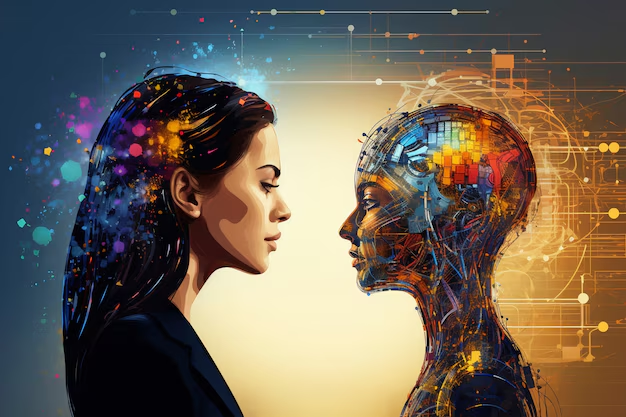How AI Impacts Our Lives: A Transformative Force in Daily Living
Artificial Intelligence (AI) has become an integral part of our lives, influencing the way we work, communicate, travel, and even entertain ourselves. Its applications are so seamlessly embedded into daily activities that many people might not even realize they are interacting with AI. Whether through personalized recommendations, voice assistants, or autonomous vehicles, AI has transformed the way we experience the world.
In this blog post, we’ll explore how AI impacts our lives, both positively and negatively, and how it continues to shape the future of humanity.
How Does AI Affect Our Everyday Lives in Autonomous Vehicles?
One of the most visible examples of AI in action is autonomous vehicles. Here’s how AI is driving innovation in this field:
- Improved Safety: AI-powered systems in autonomous cars use sensors, cameras, and advanced algorithms to detect obstacles, pedestrians, and other vehicles. This reduces the risk of accidents caused by human error.
- Efficient Navigation: AI processes real-time traffic data to suggest the fastest routes, helping reduce travel time and fuel consumption.
- Parking Assistance: AI-powered vehicles can park themselves by analyzing surroundings and finding suitable parking spots, saving drivers the hassle of manual parking.
- Enhanced Passenger Experience: Autonomous vehicles come equipped with AI-driven entertainment systems and climate controls that adjust settings based on passenger preferences, ensuring a comfortable journey.
While AI enhances convenience and safety, it also raises concerns about job displacement for drivers and ethical issues in decision-making during unavoidable accidents.
How Can AI Help Us in Our Daily Life?
AI’s influence extends beyond specialized technologies and is now a part of everyday life. Here are some common ways AI makes life easier:
- Smart Assistants: Devices like Alexa, Siri, and Google Assistant help with tasks like setting reminders, playing music, or controlling smart home devices. They simplify routine activities and save time.
- Healthcare Support: AI-based health trackers monitor vital signs, remind users to take medications, and even detect potential health issues early.
- Online Shopping: AI algorithms analyze browsing and purchase history to recommend products tailored to individual preferences, enhancing the shopping experience.
- Education: AI-powered learning platforms personalize education by adapting content to the student’s pace and understanding level.
- Financial Management: AI tools help track expenses, analyze spending habits, and suggest investment opportunities, enabling smarter financial decisions.
How Does AI Affect Our Daily Lives Negatively?
While AI offers numerous benefits, it also has potential downsides:
- Privacy Concerns: AI systems collect and analyze large amounts of personal data, raising concerns about data security and misuse.
- Job Displacement: Automation powered by AI can lead to job losses in industries like manufacturing, transportation, and customer service.
- Over-Reliance on Technology: Dependence on AI tools can reduce critical thinking and problem-solving skills, making individuals less self-reliant.
- Bias in AI Algorithms: If not designed carefully, AI systems can perpetuate biases, leading to unfair treatment in areas like hiring or lending.
How AI Impacts Our Daily Life
AI impacts almost every aspect of daily living in subtle yet profound ways:
- Communication: AI enhances communication tools like chatbots, translation apps, and email filters, making interactions more efficient.
- Entertainment: Platforms like Netflix and Spotify use AI to recommend shows, movies, and music based on user preferences.
- Transportation: Ride-hailing apps like Uber and Lyft use AI to match drivers with passengers and optimize routes.
- Security: AI-powered surveillance systems and fraud detection algorithms keep homes and finances secure.
- Social Media: AI algorithms curate content, suggest friends, and target ads, shaping how we interact online.
How AI Influences Our Life
AI’s influence extends to larger societal changes:
- Healthcare Advancements: AI aids in diagnosing diseases, developing treatments, and conducting surgeries with precision.
- Sustainable Living: AI optimizes energy consumption in smart homes and supports climate change research by analyzing environmental data.
- Education Transformation: AI democratizes access to quality education through online courses and virtual classrooms, benefiting students worldwide.
- Enhanced Creativity: AI tools assist in generating content, from writing and art to music composition, inspiring creativity in individuals and businesses.
How AI Can Improve Our Lives
By addressing its challenges and leveraging its capabilities, AI can improve lives in numerous ways:
- Disaster Management: AI helps predict natural disasters, analyze their impact, and coordinate relief efforts, saving lives and resources.
- Accessibility: AI tools like speech-to-text and language translation make technology accessible to people with disabilities or language barriers.
- Precision Agriculture: AI-powered systems analyze soil health, predict weather patterns, and optimize crop yields, supporting global food security.
Conclusion
AI is undoubtedly a transformative force that impacts our lives in both visible and invisible ways. From simplifying daily tasks to advancing entire industries, AI continues to shape how we live, work, and interact. However, as we embrace the benefits of AI, it is crucial to address its challenges, such as data privacy, ethical considerations, and job displacement, to ensure a balanced and equitable future.


